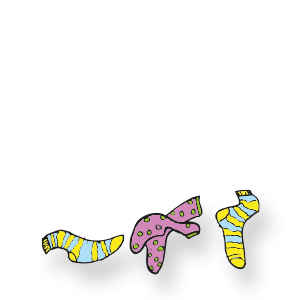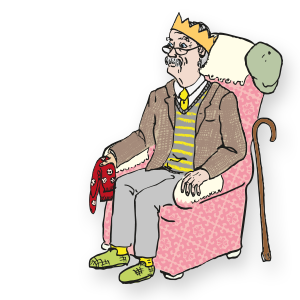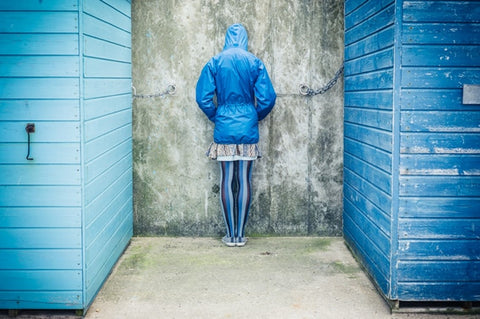

Doing is not the same as Being

Shame can be very destructive. It can lead to feelings of humiliation, rejection or self-loathing and this can present as anger or rage.
The sense of shame that develops from experiences of neglect, abuse or trauma can quickly become overwhelming. These feelings and emotions begin to put down the keystones of a person’s reality tunnel. This then is how they learn ‘to be’, who they believe ‘they are’, and it shapes the way in which they behave or react. It becomes the core of their identity.
If the feelings of feelings of humiliation, rejection or self-loathing become excessive as the emotions flood the brain, it can impair rational thought; limit the ability to communicate and all the higher cognitive functions of the brain can shut down.
Consequently, the only way we can help traumatised young people to change their behaviours, is to work with an understanding of their sense of shame.
Doing is not the same as Being.
To help people who experience shame, we need to empower them to disassociate from the shame as being ‘who they are’. Enable them to recognise that ‘doing’ something wrong is not the same as ‘being’ a bad person.
Children in particular do not like to feel shame and so they will try to avoid the consequences at all costs. They will put up a shield to protect themselves.
The shield they use may involve them displaying behaviours such as telling lies, blaming others, minimising the offence or acting in rage.
Children will lie, saying, “It wasn’t me!” I didn’t do it!”
They may blame saying “It’s all his fault,”
Or minimise their actions, saying “It was nothing” or “It doesn’t matter.”
Or they might complain, “You always blame me!”
But the feeling they will actually have inside will be
“I’m bad,”
“I’m rubbish!”
“Nobody cares about me!”
The emotional shield and its resulting defensive behaviours are there to deflect their shame. But the behaviours that then ensue can often lead to more negative reactions from the adults around the child.
It is very hard to cope with these emotions in children and many people struggle.
But reacting, by telling the child their they are wrong or naughty for displaying this behaviour, only compounds their feelings of shame.
As a foster carer I often come across children who suffer from shame, rather than guilt. And in foster care we also find that children are often a couple of years or so behind their peers, emotionally. Sometimes more, or they may even be stuck at the developmental age where a trauma took place, not being able to move on, emotionally, or educationally.
Their mind may be too pre-occupied with the trauma they faced or their feelings of shame, so they are not in a good place to be able to learn. They are filled with adrenalin - are in fight of flight mode. Which means that often children who might ordinarily have developed empathy and even resilience at their chronological age, may not do so at the same time or rate as their peers.
I know from experience that many people do not understand when a child is displaying unwanted behaviour because they are hiding behind a shield of shame. I sometimes find myself on the receiving end of other people’s judgements and misconceptions about the children I foster!
Trips to the supermarket or other public places are often a trial for me, where I feel the glare of others judging me as being a ‘bad parent’ when a child is having a meltdown in public, through feelings shame!
People staring is bad enough, but it’s even worse when they actually remark it or say something directly to me! Believe me, it happens!
I’m often tempted to tell them exactly what I’m thinking!
But I don’t.
And I can’t say “He’s not mine!” or “She can’t help being like this!”
That wouldn’t be fair to the child - even if it might make me feel temporarily better! So, I let people believe what they will and just do my best! I know the truth. They don’t need to!
As an Ollie Coach, I help children learn how to control their emotions and so this in turn improves their behaviour. In teaching them how to control their emotions, they then learn how to become resilient. Resilience is all about making mistakes, facing challenges and adversity, as we all do in life, and picking yourself up, dusting yourself down and getting on with life.
It is such a pleasure to watch when children learn and begin to practice emotional resilience!
It can take a while for children to learn about their emotions, even in normal circumstances, but especially so if they have suffered trauma or have had a bad start in life or feel shame. Sadly, sometimes children do not move on emotionally for some time.
But with nurture, patience, time and understanding they can and do learn.
Belinda Wells, Ollie Coach
Belinda is an Ollie Coach and Foster Carer. Previously a Primary School Teacher, she now has over 20 years’ experience working with children. Her interests are psychology, how we think and why we behave as we do, and she loves learning and writing. Belinda enjoys seeing the difference her work as an Ollie Coach can make to the children and families she works with.
To get in contact with Belinda email Belinda.wells@ollieandhissuperpowers.com

